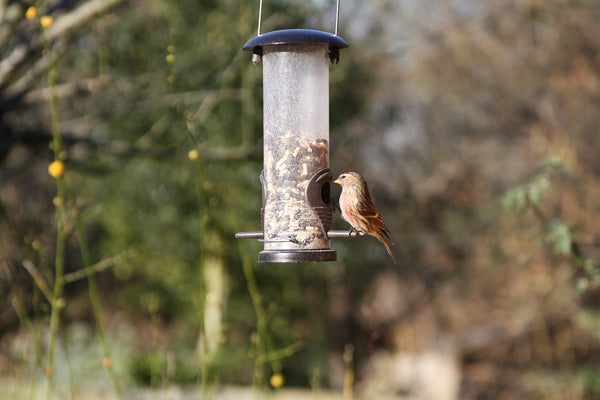The common Linnet (Linaria cannabina) is a small passerine bird and a member of the finch family. It is a slim bird with a long tail. Its upper parts are brown, throat is a sullied white and its bill is grey. In the summer the male has a grey nape, red head-patch and red breast.
The females lack the redness and are a bit more brownish, but have the white underparts. It derives its name from its fondness for flax (linseed) which is a core component of linen. The Linnet was once a very popular cage bird because of its melodious song.
They are in the UK all-year-round and gather in large flocks during the winter months. But some Linnets migrate to warmer parts of mainland Europe.
Over the last few decades in England and Wales, there has been a dramatic decline in Linnet numbers. According to the BTO, they are a red listed species of high conservation concern. Recent surveys show there has been a population increase in Scotland and Ireland.
Linnets feed on dandelion seed, oil rape seed and - as already mentioned - linseed plus other seeds. But they also eat insects, especially in the summer. This intake of natural protein and moisture gives their young the best natural start in life.

Providing food in the garden to support the natural diet of Linnets is easy. Live mealworms contain plenty of protein and moisture.
Linnets primarily feed on seeds in the wild, so a good quality seed mix is essential. Look for mixes specifically formulated for finches or small birds. These mixes typically contain a variety of seeds such as millet, canary seed, and niger seed.
Sunflower Seeds: Linnets enjoy sunflower seeds, both in the shell and hulled. They are a good source of fat and protein.
Feed seed mixes from a tube-type seed feeder, bird tables or sprinkle a little on the ground. Linnets are usually seen feeding near or on the ground.
Look out for these lovely birds in commons, heathland, farmland hedges, rough ground areas, in parks and - of course - gardens.
Written by Tina Jakes


